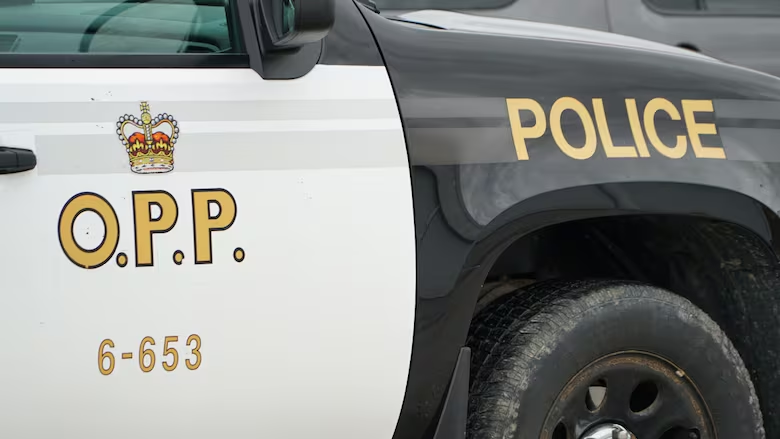New partnership between OPP and Canadian Mental Health Association aims to provide better crisis response in Kenora
Police say new partnership will be a "tool to bring appropriate crisis care" in the Kenora area

A new partnership between the Canadian Mental Health Association (CMHA) and the Ontario Provincial Police (OPP) in Kenora Ont., aims to provide a more effective and appropriate response to mental health and addictions-related crisis calls.
The partnership, dubbed the Kenora Mobile Crisis Response Team (MCRT), will see a CMHA mental health nurse employed within the Kenora OPP detachment, who will accompany a "specially-trained officer" on mental health and addictions-related police calls.
"We see this new mobile crisis partnership with CMHA Kenora as an opportunity to equip our detachment with the right tools to bring appropriate crisis care to the people in our community who need it," said Jeffrey Duggan, Kenora OPP inspector and detachment commander.
Duggan said without the MCRT, officers respond to frequent mental health related crisis calls, and are often faced with barriers or a lack of resources to respond adequately.
"The police would respond to these types of occurrences and they couldn't make [an] apprehension under the Mental Health Act."
"Now that we have this team, we have somebody that can provide referrals, reach out to the person, do the 24 hour follow ups. I think referring to other agencies is going to be really important as well," said Duggan.
The Kenora MCRT is set to launch on November 2, and will be the first mobile crisis program in the region to support individuals of all ages. The program will also aim to divert individuals from the justice system, while mitigating strain on police resources.
According to OPP and the CMHA, the program will operate on a rotational shift which complement existing community crisis services to provide coverage seven days a week.
"We know that joint mobile teams across the province where they've actually been implemented show to be quite effective on diversions from the emergency department and as well as providing access and entry into mental health and addiction systems outside of hospital settings," said Sara Dias, executive director at the CMHA Kenora Branch.
Dias said the program will give mental health and addictions care providers the "profile and presence" they need to help people build resilience, prevent relapse and support more individuals before they reach a crisis. She added getting community members connected to support in a timely manner will ultimately make the Kenora area safer too.
"This is so important in our region, as we all know, that the highest rate of individuals returning to our emergency department are individuals with significant substance issues as well as major mental health issues. So this will allow us to be able to intervene outside of that setting and follow up appropriately," she said.
In 2019, Kenora OPP officers responded to 308 mental health and addictions-related calls, and 208 through mid-September in 2020.